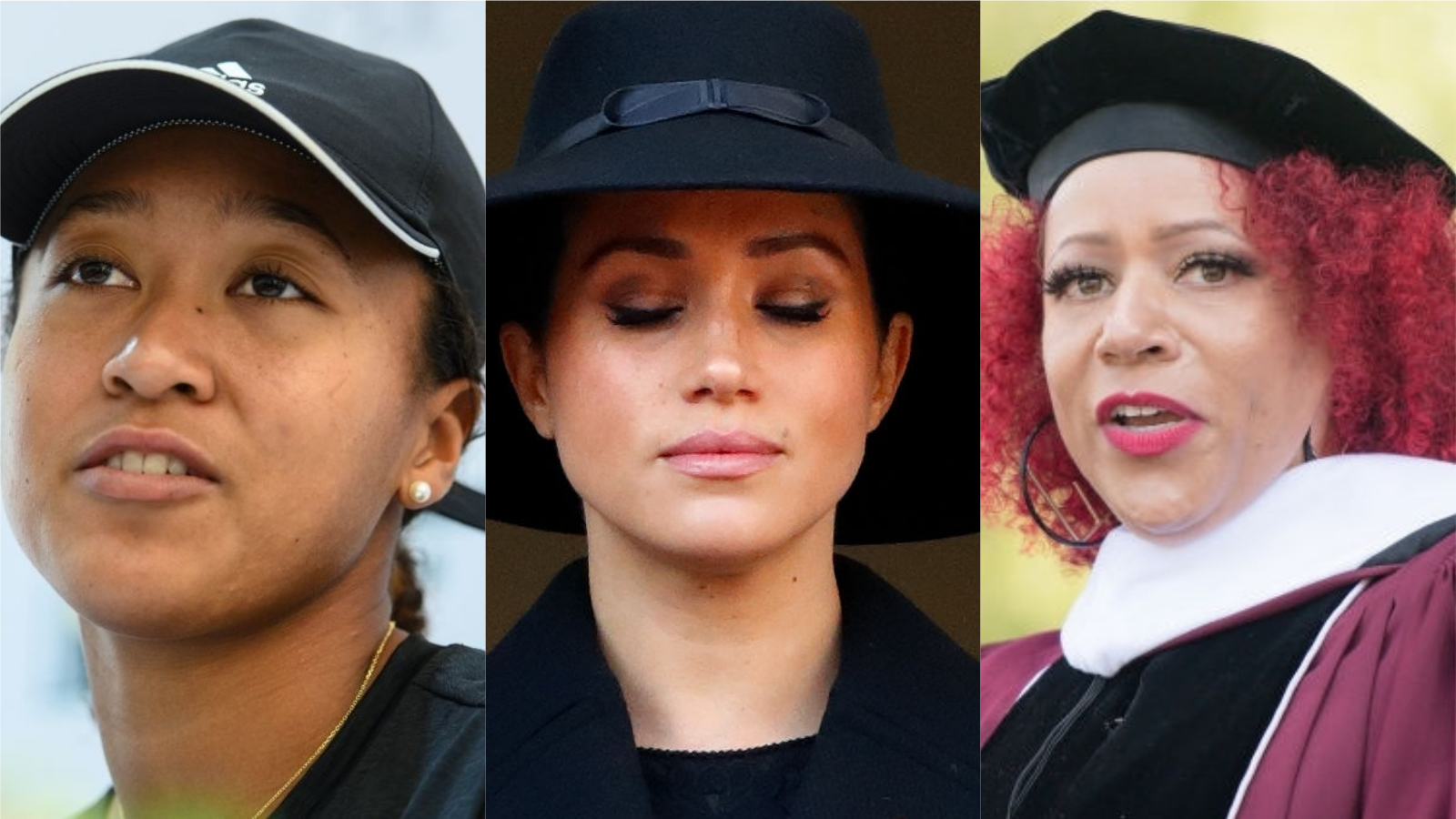It started with Black Lives Matter, was propelled by the likes of #SayHerName and #AllBlackLivesMatter and fortified by #ProtectBlackWomen.
The BLM movement and its offshoots have had a trickle-down empowerment effect on Black America and its sub-communities, including those of Black professionals.
Conversations about workplace microaggressions and non-mobility that were once hushed and limited to sister circles have now become mainstream dialogue. Anything with the slightest stench of racially-informed injustice is called out as exactly that — as seen through the "controversies" which have surrounded Duchess of Sussex Meghan Markle, journalist Nikole Hannah-Jones and sprinter Sha'Carri Richardson.
Markle, still a fairly newly anointed Duchess, left Windsor Palace last year. In March, she revealed that a royal flare for microaggressions from Queen Elizabeth's kin and British media led to her departure. Hannah-Jones had to threaten legal action to be granted tenure at her alma mater. Antiquated Olympic rules which ban the use of notoriously racialized marijuana, disqualified a rapidly rising star in 21-year-old Richardson, from competing. And Naomi Osaka stood up for her mental health while vulturous spirits sought to push her and all her self-prioritization right back down and a veteran in her field gaslit her.
Outrage around these sorts of circumstances and their racial undertones have finally become normalized. A movement toward collective and actionable allyship, not so much.
The premise around Black Women's Equal Pay Day, first established in 1996, is that it takes more than eight months for a Black woman to catch up to what her white male counterpart made a year prior. CNBC reports that the average Black woman makes 63 cents to a white man's dollar. This means that over the span of 40 years, she'll make nearly $1 million less than a white man.
As we arrive at the 25th observance of the awareness day, the aforementioned cultural events have shown that financial respect is just the minimum.
"Equity in the workplace should be table stakes for Black women in the workplace," Minda Harts, author of The Memo: What Women of Color Need to Know to Secure a Seat at the Table, told Blavity. "Equity is pay transparency, a structured promotion pipeline, and psychological safety, in which we are not constantly experiencing racialized trauma at work. We want to be able to do the best work of our careers like everyone else."
But the urgency for such equality hasn't yet arrived.
When Black Lives Matter became fodder for global discourse in 2020, companies quickly realized allyship was in their best interest. There was mutual benefit. Black plight was validated. And when recruiters became more intentional about seeking out Black talent, companies got the ultimate payoff in being able to have more respectable diversity rate. In Black hires, they probably also saw protection from any cancel-worthy racial missteps.
But generally, when it comes to battles more particular Black women, advocacy tends to take a while to catch on. Not to mention, proper pay and cultural sensitivity aren't so front-facing — as the 97% of Black people who don't care to return to the workplace after the COVID-19 pandemic could probably tell you.
It could be an entire lifetime before Markle gets the same level of neutrality afforded to Kate Middleton, that Hannah-Jones gets the same title as predecessors in her position at a university in the South and Richardson will be able to boast about bringing CBD to the Olympics.
So how can pressure be applied?
One tactic that Harts proposes is pay transparency.
"Normalizing pay transparency will be the biggest way we can hold companies and organizations accountable," she told Blavity News.
She cited a report which stated that between 2016 and 2020, only 22% of companies revealed their salary audits.
"In order to recruit and retain Black women, we need companies to be transparent and demonstrate there is no wage theft taking place," the CEO of The Memo, LLC added.
She also suggests inclusive hiring practices and training managers in conflict resolution as it pertains to matters of race.
The solutions are simple — the path to widespread empathy and urgency, less so.
